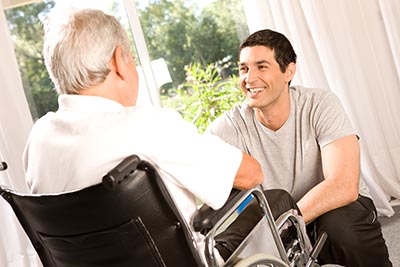 Moving Your Parents into an ALF or Skilled Nursing
Moving Your Parents into an ALF or Skilled Nursing
Do you have a loved one who needs care in a nursing home or assisted living facility? Are you concerned about how to pick out the best placed for your loved one? Or, if the loved one is already in assisted living or a nursing home, are you concerned about their care or how they are being treated?
We are very lucky to have many good facilities in the Brandon area, but unfortunately, there are always going to be some bad apples in the bunch. Here are some tips to help you, whether you are looking for a place for your loved one, or if you are concerned about their care:
- If at all possible, consider a facility that is close to where the elder’s loved ones live – studies have shown that the more visitors an elder has, the better care the elder receives.
- That being said, make sure to visit your loved one at all times of the day. Residents in both nursing homes and assisted living have rights in Florida (see Florida Statute, §400.022 for nursing home residents, and Florida Statute, §429.28 for assisted living residents), and one of those rights is to receive visitors. In assisted living, the elder can visit with anyone, at a minimum, between the hours of 9 a.m. and 9 p.m., and the facility must make additional provisions if the elder has out-of-town visitors.
- If you are considering assisted living for your elderly relative, consult with the elder’s doctor to make sure they are able to live in assisted living. They have to be able to do most of their activities of daily living (dressing, bathing, feeding) with only minimal help. If an individual is bedridden, they are probably not a candidate for assisted living.
We are very lucky to have many good facilities in the Brandon area, but unfortunately, there are always going to be some bad apples in the bunch.
- Visit potential facilities. Take a tour of every part of the facility, including the residents’ rooms, and pay attention to how things look, how they smell and what activities the residents are doing. Ask to look at the activities calendar so you can see what sorts of activities the facility offers.
- Before your loved one signs any paperwork, have an attorney look at it. Do not sign anything that would make you financially responsible (children and spouses are not obligated to pay their loved one’s bills in Florida) and be careful if there is an arbitration provision in the contract. Agreeing to binding arbitration, in the event that something goes wrong while your loved one is in the facility, will cause you to lose the right to sue and could cause you to forego pursuing damages you might otherwise be entitled to.
- Review Florida’s Agency for Health Care Administration’s website at ahca.myflorida.com to see the results of inspections of facilities (done every two years) and any investigation reports – these are available to the public.
- Does your loved one have a complaint about the assisted living facility they are in? You can call your local Long-Term Care Ombudsman office and they will investigate the complaint and may be able to help resolve issues. Check out their website at https://ombudsman.elderaffairs.org/ for valuable information. If you suspect your loved one is being abused, you can call the Florida Department of Children and Families abuse hotline at 1-800-96 ABUSE.
There was an excellent investigation of assisted living facilities done by the Miami Herald entitled “Neglected to Death” and you can read more about the issues and problems facing our state and the care we provide to our elderly, as well as more ways to protect your loved ones at Neglected to Death Story.
Laurie Ohall is a board certified elder law attorney in Brandon, Florida. If you would like to learn more about moving your parent into a nursing home, please contact her Brandon law office today.
